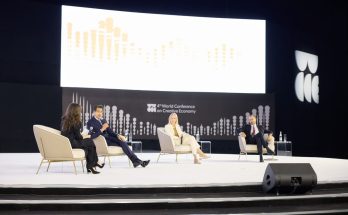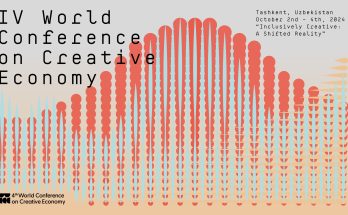 Cultural diplomacy has acquired a new resonance under the watch of India’s Prime Minister Narendra Modi. Mr Modi, a devout Hindu and a dedicated yoga practitioner who has been observing the nine-day Navratra fast during his entire US trip, likes to forge cultural bonding with foreign leaders. This time round, Mr Modi has personally chosen gifts for his American host, President Barack Obama. When Mr Modi went to the White Hose for the private dinner hosted by Mr Obama on September 29, he presented him a copy of Mahatma Gandhi’s interpretation of The Bhagvad Gita, the deeply philosophical poem that espouses the ethos of nishkama karma – selfless work and pursuing the path of dharma.
Cultural diplomacy has acquired a new resonance under the watch of India’s Prime Minister Narendra Modi. Mr Modi, a devout Hindu and a dedicated yoga practitioner who has been observing the nine-day Navratra fast during his entire US trip, likes to forge cultural bonding with foreign leaders. This time round, Mr Modi has personally chosen gifts for his American host, President Barack Obama. When Mr Modi went to the White Hose for the private dinner hosted by Mr Obama on September 29, he presented him a copy of Mahatma Gandhi’s interpretation of The Bhagvad Gita, the deeply philosophical poem that espouses the ethos of nishkama karma – selfless work and pursuing the path of dharma.
Underlining his eclectic worldview, Prime Minister Modi also presented an audio tape of the speech made by iconic civil rights leader Martin Luther King Jr during his trip to India in 1959. He also presented framed archival photographs of Dr King’s visit to Rajghat, the memorial of Mahatma Gandhi.
The gifts touched President Obama, the first African-American president of the US, who regards Dr King as his spiritual mentor and Mahatma Gandhi as his inspiration.
A senior Indian official said the prime minister likes to establish cultural connections wherever he goes. In his stirring address to hundreds of Indian-Americans at Madison Square Garden in New York, Mr Modi made references to Indian saint-philosopher Swami Vivekanada and Mahatma Gandhi.
During his trip to Japan, Mr Modi presented a copy of the Bhagvad Gita and the anthology of teachings of Swami Vivekanada to his Japanese counterpart Shinzo Abe. A few days before coming to the US, Mr Modi hosted Chinese President Xi Jinping and presented a copy of The Gita in Chinese and took him on a guided tour of Sabarmati Ashram, home to Mahatma Gandhi for 12 years.
In his address at the United Nations General Assembly in New York September 27, Mr Modi surprised many by pitching for an International Day of Yoga and sought to link climate change debate to the Hindu ideals of living harmoniously with nature.
This new style of cultural diplomacy by the Indian prime minister has brought a new shine to India’s soft power, and promises to raise the global profile of the country, which has been proactively pursuing a permanent seat for India in the UN Security Council.
 (Manish Chand is Editor-in-Chief of India Writes Network, www.indiawrites.org, a portal and e-journal focused on international affairs and the India Story. Follow him on twitter@scepticcryptic).
(Manish Chand is Editor-in-Chief of India Writes Network, www.indiawrites.org, a portal and e-journal focused on international affairs and the India Story. Follow him on twitter@scepticcryptic).
Author Profile

- Manish Chand is Founder and Editor-in-Chief of India Writes Network (www.indiawrites.org) and India and World, a pioneering magazine focused on international affairs. He is CEO, Centre for Global India Insights, an India-based think tank focused on global affairs.
Latest entries
 India and the WorldFebruary 27, 2026Modi visit: India-Israel partnership enters a new era
India and the WorldFebruary 27, 2026Modi visit: India-Israel partnership enters a new era India and the WorldFebruary 24, 2026Unravelling Modi’s Israel journey: What to expect
India and the WorldFebruary 24, 2026Unravelling Modi’s Israel journey: What to expect India and the WorldFebruary 17, 2026South-by-South: Focus on people-centric solutions at India AI summit
India and the WorldFebruary 17, 2026South-by-South: Focus on people-centric solutions at India AI summit India and the WorldFebruary 7, 2026Modi hails interim India-US trade deal, Goyal says no concessions made on agriculture
India and the WorldFebruary 7, 2026Modi hails interim India-US trade deal, Goyal says no concessions made on agriculture







